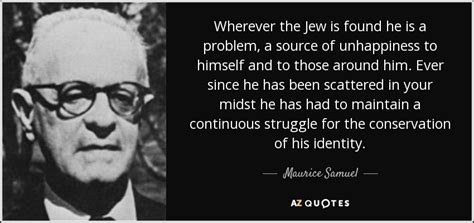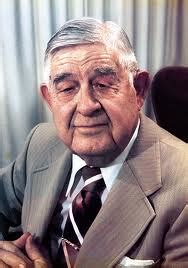A Quote by William Gurnall
God, to prevent all escape, hath sown the seeds of death in our very constitution and nature, so that we can as soon run from ourselves, as run from death. We need no feller to come with a hand of violence and hew us down; there is in the tree a worm, which grows out of its own substance, that will destroy it; so in us, those infirmities of nature that will bring us down to the dust.
Related Quotes
There exists a law, not written down anywhere but inborn in our hearts; a law which comes to us not by training or custom or reading but by derivation and absorption and adoption from nature itself; a law which has come to us not from theory but from practice, not by instruction but by natural intuition. I refer to the law which lays it down that, if our lives are endangered by plots or violence or armed robbers or enemies, any and every method of protecting ourselves is morally right.
There is no true and constant gentleness without humility. While we are so fond of ourselves, we are easily offended with others. Let us be persuaded that nothing is due to us, and then nothing will disturb us. Let us often think of our own infirmities, and we will become indulgent towards those of others.
How many more times do we have to come to terms with death before we find safety?" he asked. He waited a few minutes, but the three of us didn't say anything. He continued: "Every time people come at us with the intention of killing us, I close my eyes and wait for death. Even though I am still alive, I feel like each time I accept death, part of me dies. Very soon I will completely die and all that will be left is my empty body walking with you. It will be quieter than I am.
For most of us, karma and negative emotions obscure the ability to see our own intrinsic nature, and the nature of reality. As a result we clutch on to happiness and suffering as real, and in our unskillful and ignorant actions go on sowing the seeds of our next birth. Our actions keep us bound to the continuous cycle of worldly existence, to the endless round of birth and death. So everything is at risk in how we live now at this very moment: How we live now can cost us our entire future.
When we are young the idea of death or failure is intolerable to us; even the possibility of ridicule we cannot bear. But we have also an unconquerable faith in our own stars, and in the impossibility of anything venturing to go against us. As we grow old we slowly come to believe that everything will turn out badly for us, and that failure is in the nature of things, but then we do not much mind what happens to us one way or the other. In this way a balance is obtained.
The sculptor will chip off all unnecessary material to set free the angel. Nature will chip and pound us remorselessly to bring out our possibilities. She will strip us of wealth, humble our pride, humiliate our ambition, let us down from the ladder of fame, will discipline us in a thousand ways, if she can develop a little character. Everything must give way to that. Wealth is nothing, position is nothing, fame is nothing, manhood is everything.
Each of us will have our own Fridays—those days when the universe itself seems shattered and the shards of our world lie littered about us in pieces. We all will experience those broken times when it seems we can never be put together again. We will all have our Fridays. But I testify to you in the name of the One who conquered death—Sunday will come. In the darkness of our sorrow, Sunday will come. No matter our desperation, no matter our grief, Sunday will come. In this life or the next, Sunday will come.
Your death and my death are mainly of importance to ourselves. The black plumes will be stripped off our hearses within the hour; tears will dry, hurt hearts close again, our graves grow level with the church-yard, and although we are away, the world wags on. It does not miss us; and those who are near us, when the first strangeness of vacancy wears off, will not miss us much either.
A century of partial tolerance gave us Jews access to your world. In that period the great attempt was made, by advance guards of reconciliation, to bring our two worlds together. It was a century of failure. We Jews, we, the destroyers, will remain the destroyers forever. Nothing that you will do will meet our needs and demands. We will forever destroy because we need a world of our own, a God-world, which it is not in your nature to build
If the book we are reading does not wake us, as with a fist hammering on our skull, why then do we read? So that it shall make us happy? Good God, we should also be happy if we had no books, and such books as make us happy we could, if need be, write ourselves. But what we must have are those books which come upon us like ill fortune, and distress us deeply, like the death of one we love better than ourselves; like suicide. A book must be an ice-axe to break the sea frozen inside us.
And then the dear Lord will take us to the new earth, surrounded by the new Heaven, and the holy New Jerusalem will come down from God out of Heaven. Then we will have an end of pain and sorrow and crying and death. All these, thank God, will be forever done! And then God Himself will wipe away our tears.
All the wants which disturb human life, which make us uneasy to ourselves, quarrelsome with others, and unthankful to God, which weary us in vain labors and foolish anxieties, which carry us from project to project, from place to place in a poor pursuit of we don't know what, are the wants which neither God, nor nature, nor reason hath subjected us to, but are solely infused into us by pride, envy, ambition, and covetousness.



































